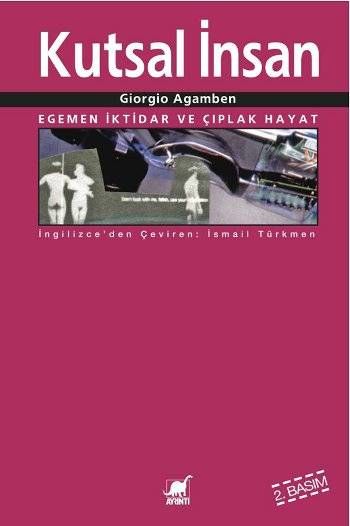
holy man
The Holy Man adds a new one to the original analyzes of Giorgio Agamben, one of the leading figures of Italian situationism, which requires a radical rethinking of the political philosophy tradition. In his recent works, Agamben focused on the concepts of identity, singularity and community, and investigated the possibility conditions of a community that is not totalitarian but does not act from the "individual". In this book, he draws on the concept of bare life, the power that has dominated Western political thought from ancient Greece to the present day. It reveals the invisible face of understanding. Taking as a starting point the concept of biopolitics, which Michel Foucault calls the threshold of biological modernity and defines as the human being's biological existence becoming the object of politics with all the powers it carries, Agamben, contrary to Foucault, argues that biopolitics is not specific to modernity alone, but also derives from Aristotle, albeit in different forms. It shows that he has covered political thought and practice from Roman Law, from the Declaration of Human Rights to Carl Schmitt, from Auschwitz to today's concentration camps. According to Agamben, who conceptualizes human biological existence as "bare life", what is at stake in this whole process is the inclusion of life into the political order, and in fact, the power's domination over bare life, with an originary act that establishes the sovereign power itself. However, the inclusion of life into the political order is paradoxically only possible through its exclusion in certain senses. The figure that best expresses this paradoxical situation historically is the Homo Sacer, that is, the "holy man" figure that we encounter in Roman Law. The life carried by the holy person, as a category that can be killed but not sacrificed, also determines the area of sovereignty. The practices of power, which makes its own naked life the object of politics in a way it chooses, but can kill people who are willing to give up their "sacred" life in order to "bring them back to life", become more understandable in the light of these analyses. The Holy Man is a book that should be read by abandoning the established thinking patterns and definitions in political philosophy and following the special line from Debord's Society of the Spectacle to Negri and Hardt's Empire.
(From the Promotional Bulletin)
Number of Pages: 240
Year of Printing: 2013
Language: Turkish
Publisher: Details Publications
First Print Year: 2001
Number of Pages: 240
Language Turkish
| Publisher | : | Details Publications |
| Number of pages | : | 240 |
| Publication Year | : | 2013 |
| ISBN | : | 9789755393339 |
| Translator | : | Ismail Turkmen |
| The heart | : | Turkish |


